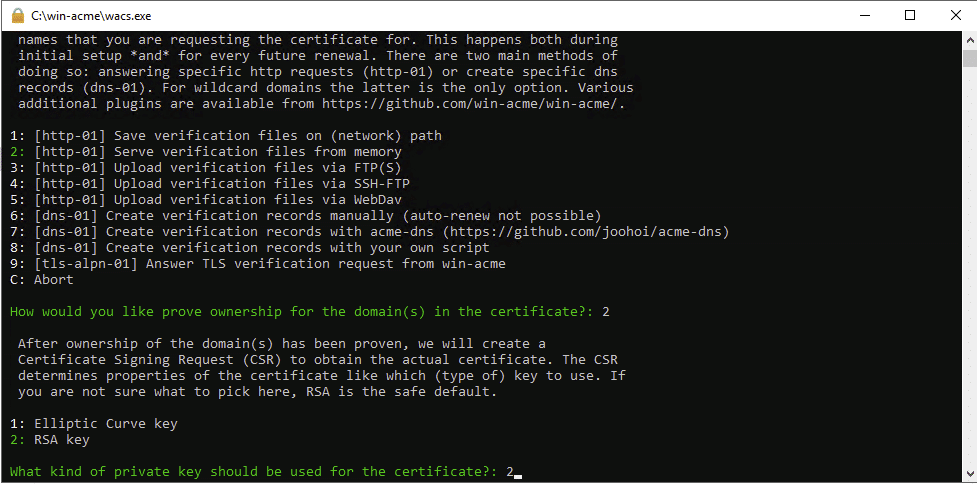- For example, httpd can read files labeled with the httpdsyscontentt type, but cannot write to them, even if Linux (DAC) permissions allow write access. Booleans must be enabled to allow certain behavior, such as allowing scripts network access, allowing httpd access to NFS and CIFS volumes, and httpd being allowed to execute Common Gateway.
- This howto is for CentOS 5 only. CentOS 4 need slightly different options in the httpd-config. In order to use kerberos authentication in apache httpd you need a service principal entry in the keytab file on the machine running apache httpd. All descriptions here use the global keytab file in /etc/krb5.keytab.
Httpd is the Apache HyperText Transfer Protocol (HTTP) server program. It is designed to be run as a standalone daemon process. When used like this it will create a. Check file httpd.conf with path /etc/httpd/httpd.conf if changed timestamp then exec '/etc/init.d/httpd graceful' In this example we demonstrate usage of the extended alert statement and a file check dependency.
Introduction
The Apache mod_rewrite is a very powerful and sophisticated module which provides a way to perform URL manipulations. Using mod_rewrite one can perform all types of URL rewriting that one may need. This article will teach you how to enable apache module mod_rewrite on CentOS server.
Step 1: Check if the module exists
Before enabling the module mod_rewrite, we need to check if the module is already loaded in the httpd file.
Run the following command on your terminal.
The output will be similar to the following,

From the above result, we can find out the path of the apache config file (httpd.conf). From the result, we can say that the conf file path is /etc/httpd/conf/httpd.conf for our server.
To check if the module exists, run the command mentioned below,
If the module exists, you will get the following result.
Output:

The chances of not getting this result are rare, but if you don’t get this result you need to install mod_rewrite and compile apache with the module support.
Step 2: Check if the module is loaded
Now that we have verified that the module exists in the modules directory, let’s check if the module is loaded or enabled. To do this run the following command in the terminal,
If you see the following result, it means that the module is enabled.

If this result is commented like mentioned below, then remove the comment from the httpd.conf file, then save and exit the file.

But if you don’t get any of the above results, then add the following line to your httpd.conf file.
Step 3: Configure httpd.conf file
Now that we have enabled the mod_rewrite module, next to use .htaccess to do URL rewriting using mod_rewrite, you need to allow each directory to override Apache’s global options.
Run the following command in your terminal,
Output:
Httpd Check If Mod_rewrite Is Enabled
Edit the httpd.conf file by locating <Directory /var/www/html> section and change the directive from None to All. Then save and exit the file.
That’s it, you have enabled the mod_rewrite module on your CentOS server.
Was this article helpful?
Related Articles

Functions
Normal string-valued functions take one string as argument and return a string. Functions names are not case sensitive. Modules may register additional functions.
| Name | Description | Special notes |
|---|---|---|
req, http | Get HTTP request header; header names may be added to the Vary header, see below | |
req_novary | Same as req, but header names will not be added to the Vary header | |
resp | Get HTTP response header (most response headers will not yet be set during <If>) | |
reqenv | Lookup request environment variable (as a shortcut, v can also be used to access variables). | ordering |
osenv | Lookup operating system environment variable | |
note | Lookup request note | ordering |
env | Return first match of note, reqenv, osenv | ordering |
tolower | Convert string to lower case | |
toupper | Convert string to upper case | |
escape | Escape special characters in %hex encoding | |
unescape | Unescape %hex encoded string, leaving encoded slashes alone; return empty string if %00 is found | |
base64 | Encode the string using base64 encoding | |
unbase64 | Decode base64 encoded string, return truncated string if 0x00 is found | |
md5 | Hash the string using MD5, then encode the hash with hexadecimal encoding | |
sha1 | Hash the string using SHA1, then encode the hash with hexadecimal encoding | |
file | Read contents from a file (including line endings, when present) | restricted |
filemod | Return last modification time of a file (or 0 if file does not exist or is not regular file) | restricted |
filesize | Return size of a file (or 0 if file does not exist or is not regular file) | restricted |
Http Different Port
The functions marked as 'restricted' in the final column are not available in some modules like mod_include.
The functions marked as 'ordering' in the final column require some consideration for the ordering of different components of the server, especially when the function is used within the <If> directive which is evaluated relatively early.
Environment variable ordering
When environment variables are looked up within an <If> condition, it's important to consider how extremely early in request processing that this resolution occurs. As a guideline, any directive defined outside of virtual host context (directory, location, htaccess) is not likely to have yet had a chance to execute. SetEnvIf in virtual host scope is one directive that runs prior to this resolution When
reqenv is used outside of <If>, the resolution will generally occur later, but the exact timing depends on the directive the expression has been used within. When the functions req or http are used, the header name will automatically be added to the Vary header of the HTTP response, except where otherwise noted for the directive accepting the expression. The req_novary function can be used to prevent names from being added to the Vary header.
In addition to string-valued functions, there are also list-valued functions which take one string as argument and return a wordlist, i.e. a list of strings. The wordlist can be used with the special -in operator. Functions names are not case sensitive. Modules may register additional functions.
Http Difference Https
There are no built-in list-valued functions. mod_ssl provides PeerExtList. See the description of SSLRequire for details (but PeerExtList is also usable outside of SSLRequire).
